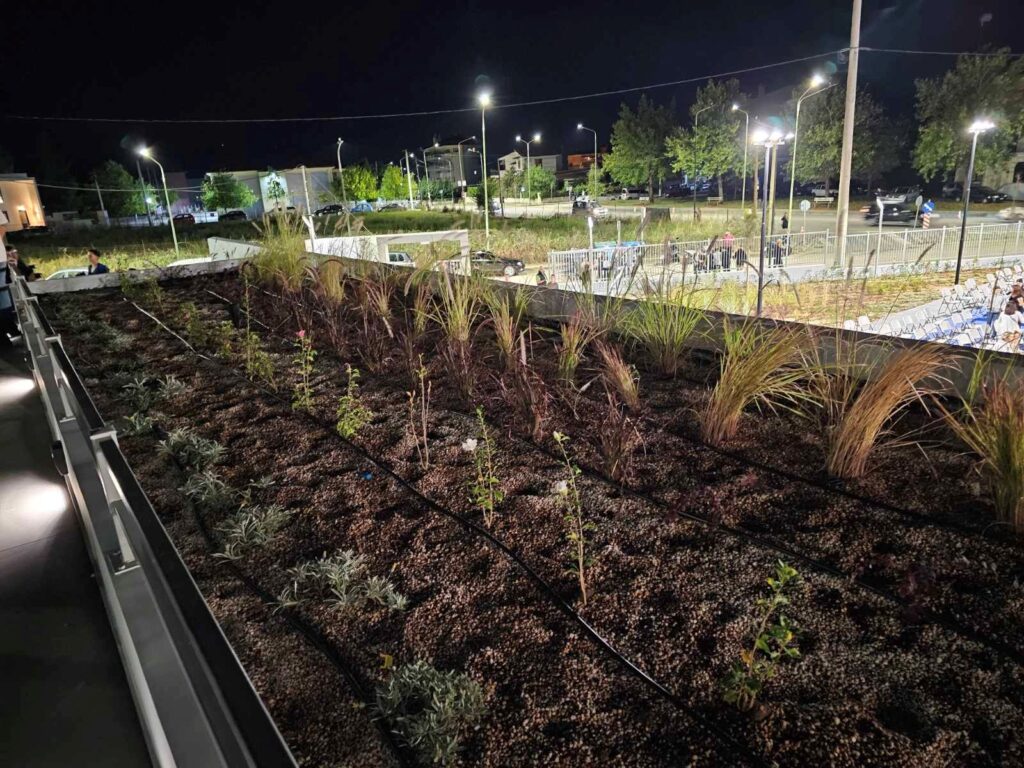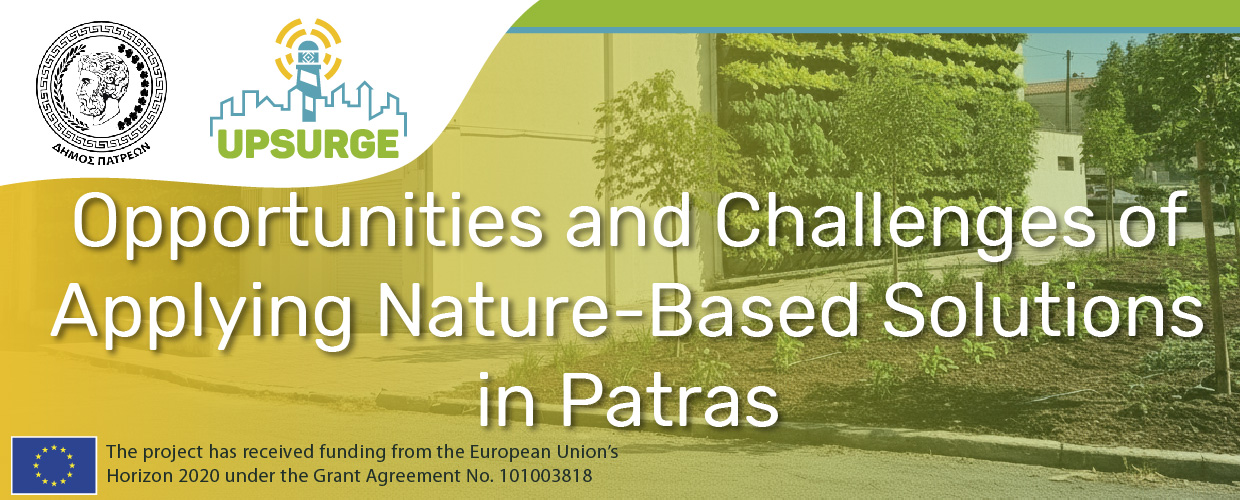Patras, Greece’s third-largest city and a key port in the Peloponnese, faces escalating urban challenges from climate change, including heatwaves, flooding, and social inequities in deprived neighborhoods. As a partner in the EU-funded UPSURGE project (2021–2025), Patras is actively piloting Nature-Based Solutions (NBS) to enhance urban resilience. UPSURGE focuses on upscaling NBS through citizen science, co-creation, and policy integration across nine European cities, emphasizing multifunctional green interventions like urban forests, green roofs, and pocket parks. In Patras, the project targets the Agia Sophia area—a socio-economically vulnerable district with aging infrastructure and limited green space—deploying NBS such as community gardens, permeable pavements, and tree-planting initiatives to mitigate heat islands and improve water management. These efforts align with broader European trends where NBS have restored urban ecosystems while fostering social cohesion.

Opportunities for NBS in Patras abound, particularly in leveraging local contexts for transformative impact. First, aesthetic and multifunctional design can boost citizen appreciation and stewardship. In Patras, UPSURGE’s co-creation workshops with residents, architects, and municipality officials enable visually appealing NBS—such as artist-designed green roofs—that integrate seamlessly into the city’s Mediterranean landscape, promoting recreation and biodiversity. Second, NBS offer an alternative to grey infrastructure, addressing multiple agendas like climate adaptation and social inclusion. Patras’s waterfront and hilly topography suit linear parks and rain gardens, potentially reducing flood risks while generating green jobs and environmental education. Collaborative governance, a key UPSURGE pillar, fosters trust and diversity in participation, allowing Patras to learn from social innovations and replicate scalable designs long-term. By embedding NBS in local action plans, the city can unlock EU funding and align with national green policies, enhancing livability in deprived areas and building resilience against economic pressures like post-austerity recovery.

Yet, challenges persist, rooted in structural conditions of Patras’s urban infrastructure regime. Limited collaborative governance hinders integration, as policy barriers between environmental and planning departments mirror broader Greek bureaucratic hurdles, delaying NBS permits and enforcement. Knowledge gaps and low awareness—exacerbated by insufficient data on NBS co-benefits—undermine private sector buy-in; developers prioritize housing over green space amid land scarcity in Patras’s expanding urban core. Resource constraints are acute: austerity legacies mean underfunded municipalities struggle with maintenance. Citizen engagement faces cultural hurdles, including low environmental awareness in dense neighborhoods, where NBS compete with development needs. Up to now, trust in engineering over living solutions reinforces these, with NBS often sidelined in favor of “quick-fix” concrete interventions.

Addressing these requires context-sensitive strategies: tailored narratives to mainstream NBS across agendas, diversified funding via public-private partnerships, and ongoing monitoring for replication. Patras’s UPSURGE involvement positions it to pioneer inclusive, place-based NBS, balancing ecosystem restoration with social equity for a resilient future.
Edited by Vasileios Kantzaris (Municipality of Patras)

